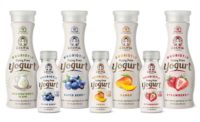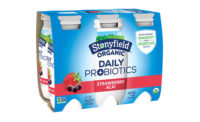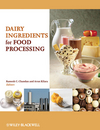Probiotic Yogurt on Virility

Scientists from the Massachusetts Institute of Technology found male mice fed the vanilla-flavored dessert had a certain "swagger" when they walked.
They discovered these mice had testicles that were 5% higher than other mice on a normal diet and 15% heavier than junk-eating males.
What is more, in mating experiments the yogurt-eating males inseminated their partners more quickly and produced more young than control mice.
Yogurt-fed female mice benefited, too: they had larger litters and were more successful at weaning their pups.
The findings could have implications for human fertility, and the team will next look at the association between yogurt and semen quality in men.
The researchers stumbled across the interesting finding when studying the effects of yogurt on obesity.
In a bid to prove whether yogurt could help stave off age-related weight gain in humans, researchers Eric Alm and Susan Erdman fed pro-biotic vanilla yogurt to mice with some unexpected results.
The yogurt-eating mice had shinier fur than their non-dairy fed siblings and the male mice were described as all of a sudden having a "swagger."
"We knew there was something different in the males, but we weren’t sure what it was at first," Erdman told ABC News.
"You know when someone’s at the top of their game, how they carry themselves differently? Well, imagine that in a mouse."
It could perhaps would explain the sex-appeal in recent yogurt advertisements such as the strapping farmers singing for Yeo Valley.
Other beneficial effects included slimmer bodies and shinier fur in both sexes as yogurt-fed mice had 10 times the active follicle density of the control group.
Not only did the girl mice sport the shiny fur coat and considerably slimmer physique of their male counterparts, they also tended to be better mothers to their (as a result of their dairied-up partners) larger litters.
"We think it’s the probiotics in the yogurt," Alm explained.
"We think those organisms are somehow directly interacting with the mice to produce these effects."
From the May 9, 2012, Prepared Foods’ Daily News
Looking for a reprint of this article?
From high-res PDFs to custom plaques, order your copy today!






